ACADEMIC PROGRAMS
The College of Education and Professional Studies at the University of Wisconsin-Whitewater is committed to the development of professionals who are lifelong learners, creators of knowledge, and leaders of character and integrity. Responding to the changing needs within our global society, our programs prepare professionals to actively engage in an open democratic society inclusive of diverse populations. As a premier center for global learning, the College's focus on depth of learning and academic excellence provides our students with the requisites to be leaders dedicated to change in their communities.
Have a bachelor's degree? Earn a teaching license »
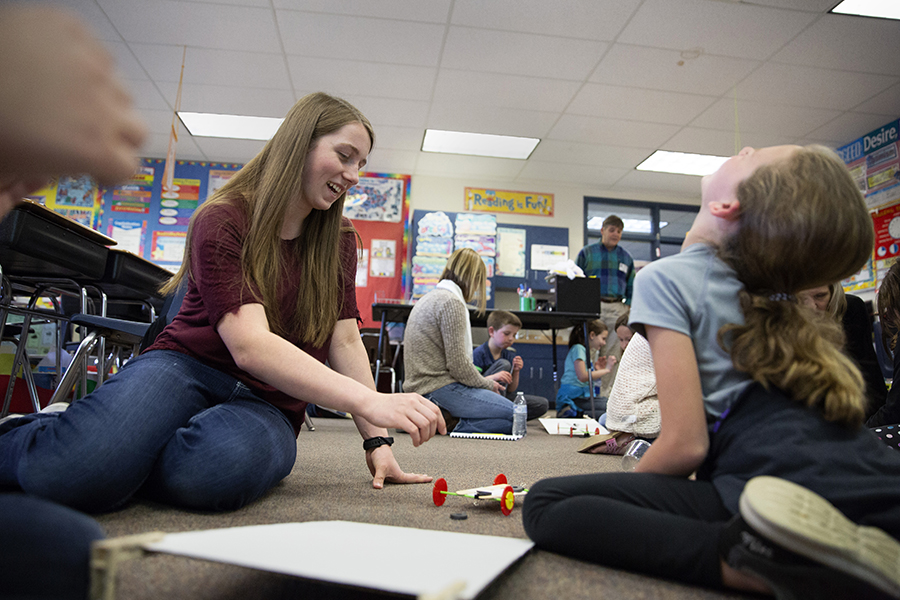

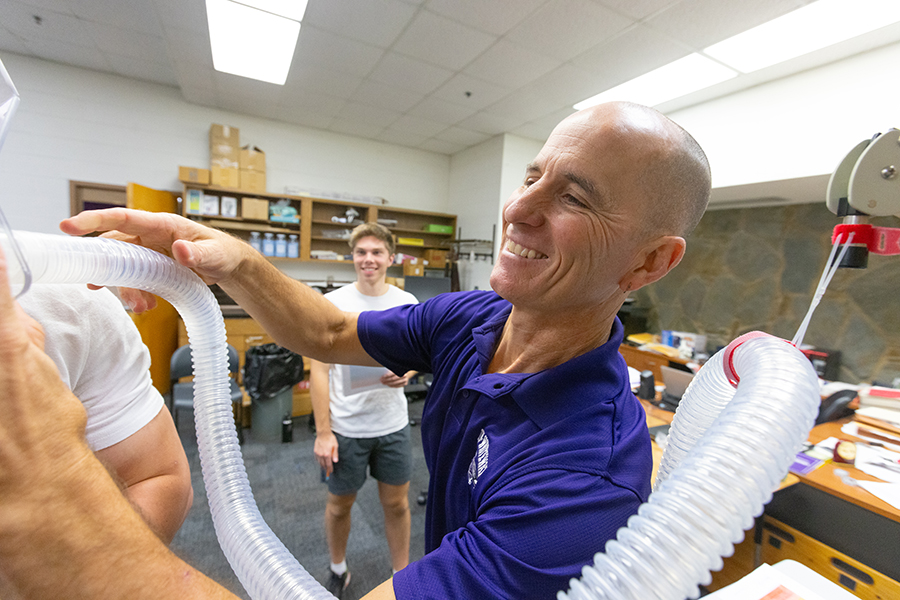


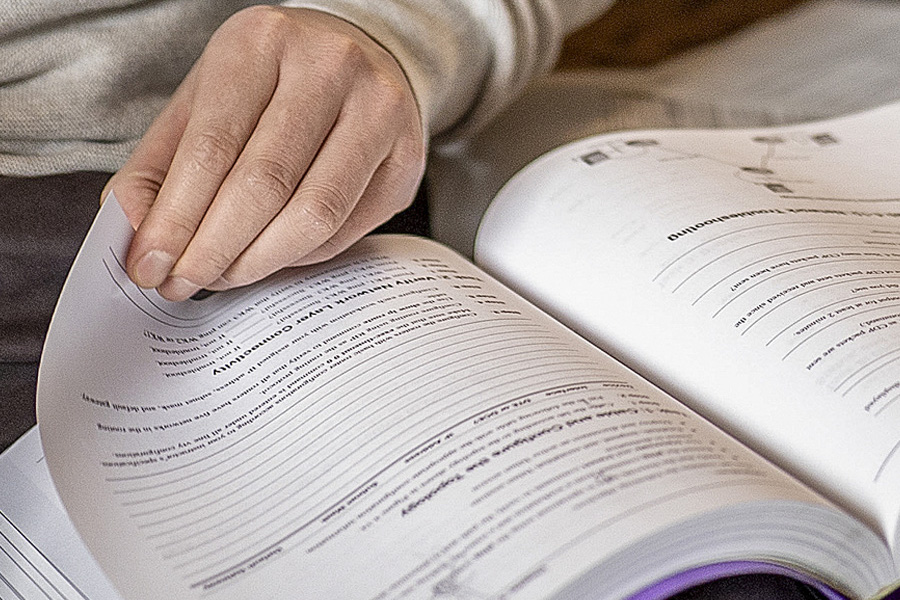

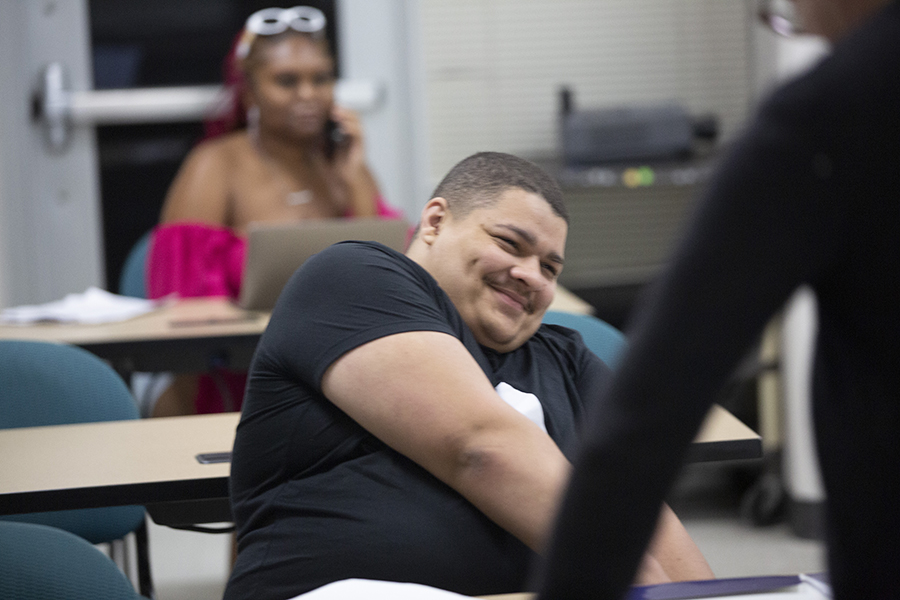
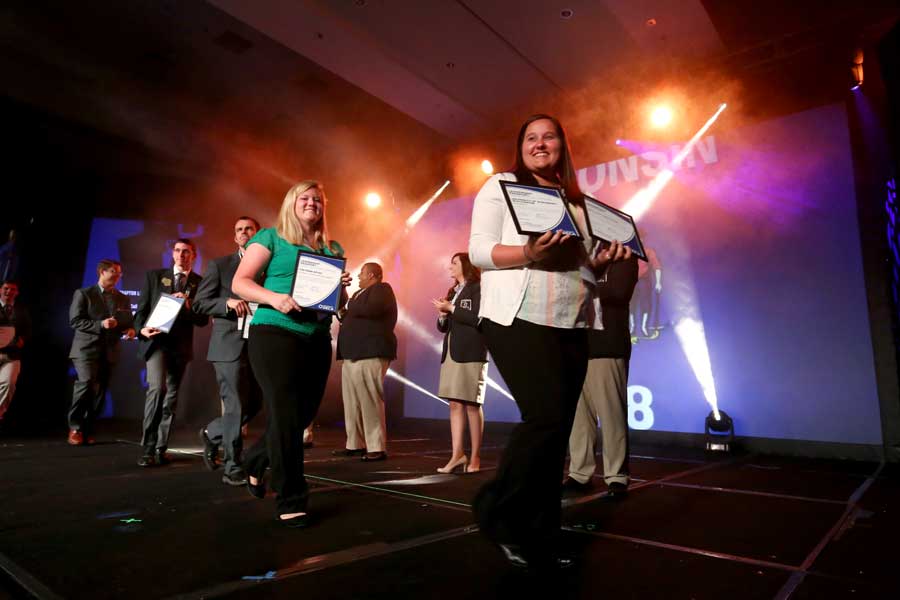
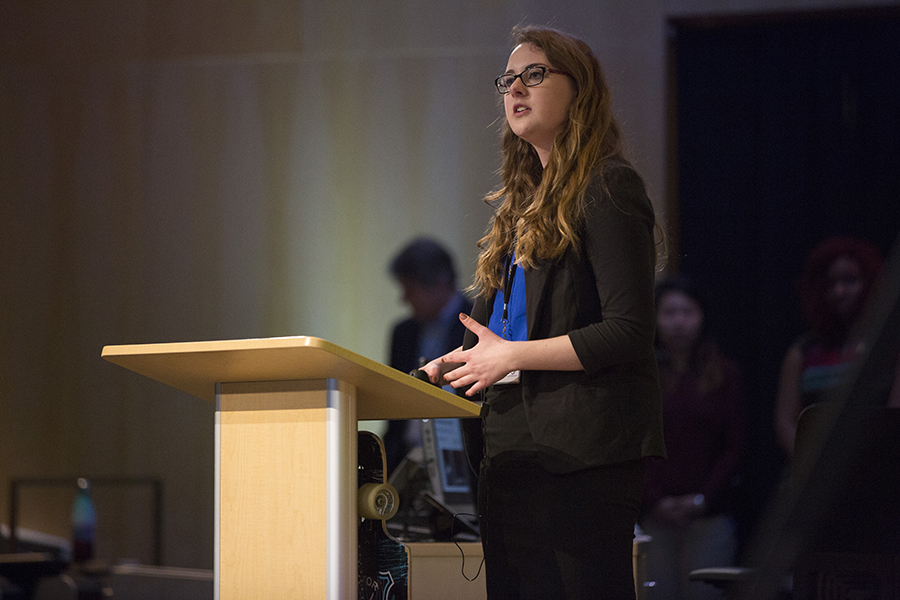
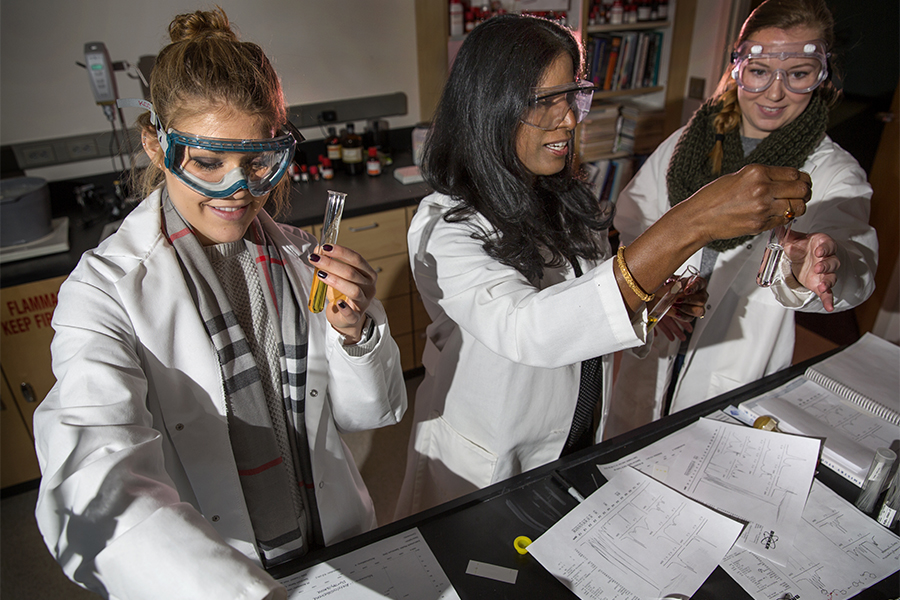
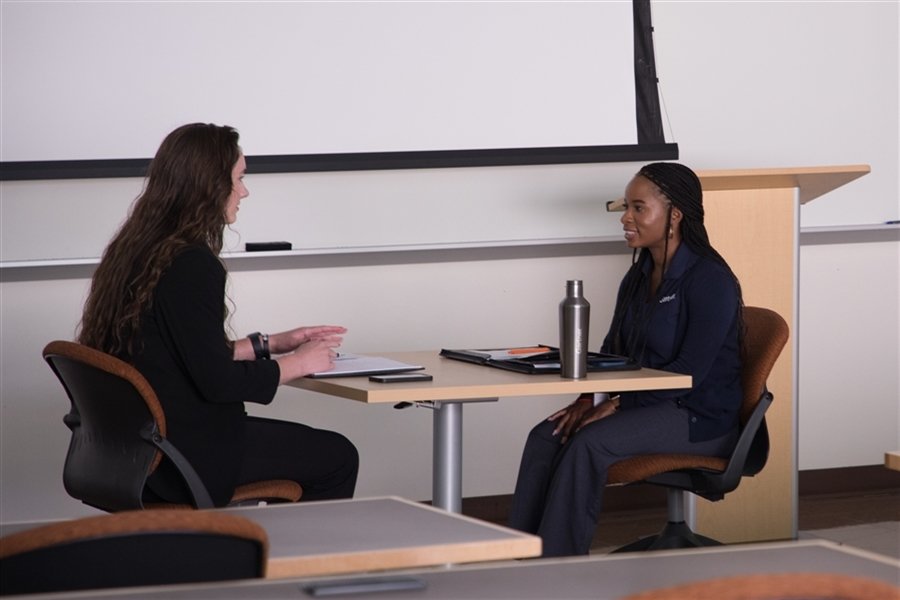
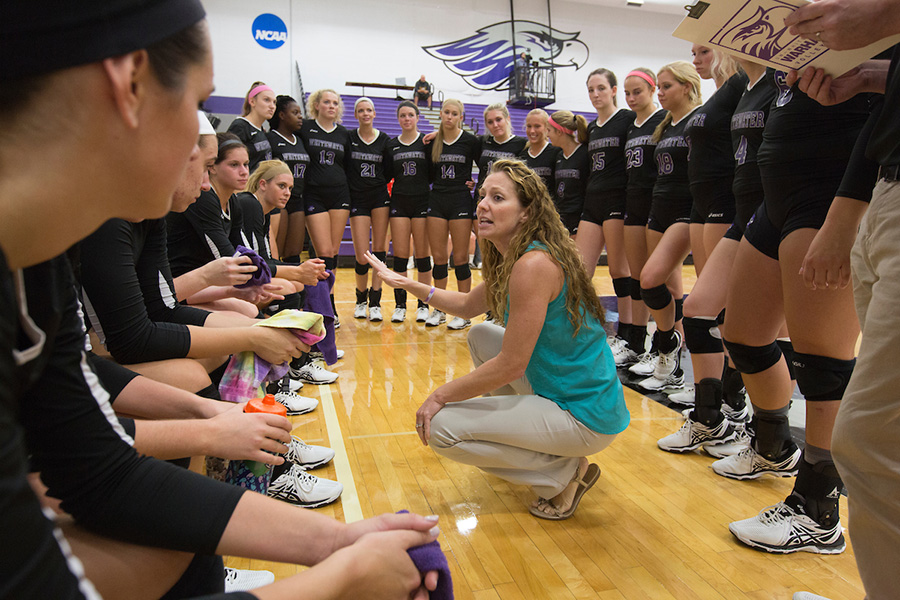

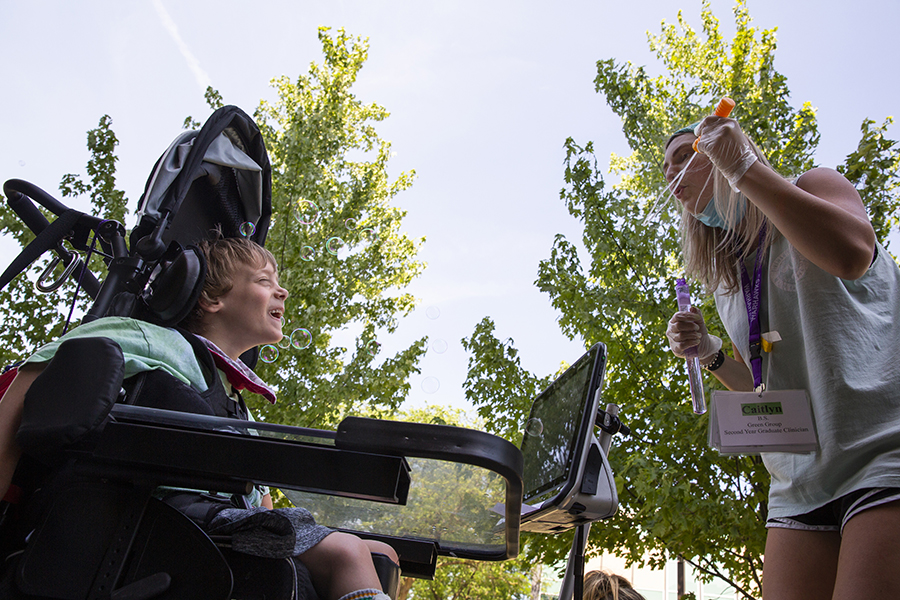
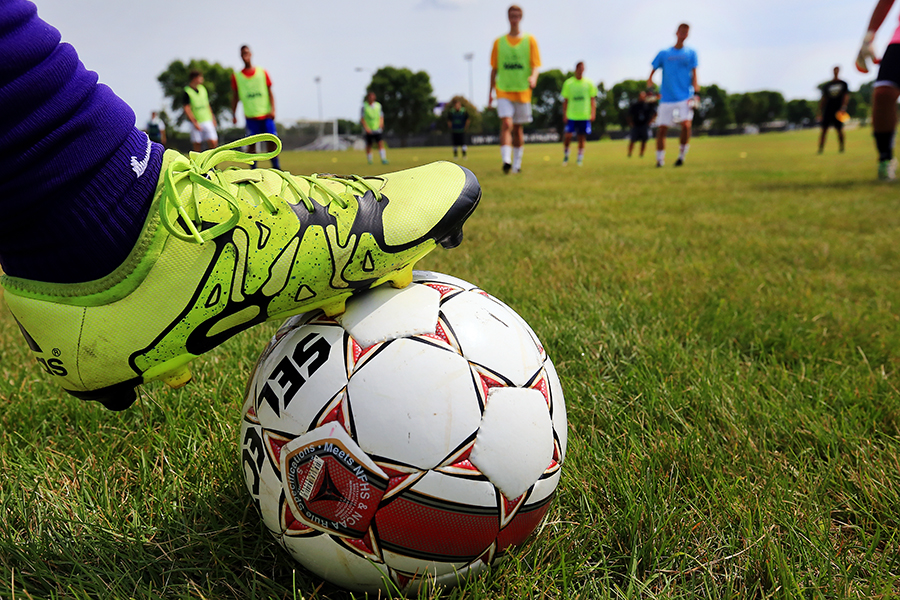
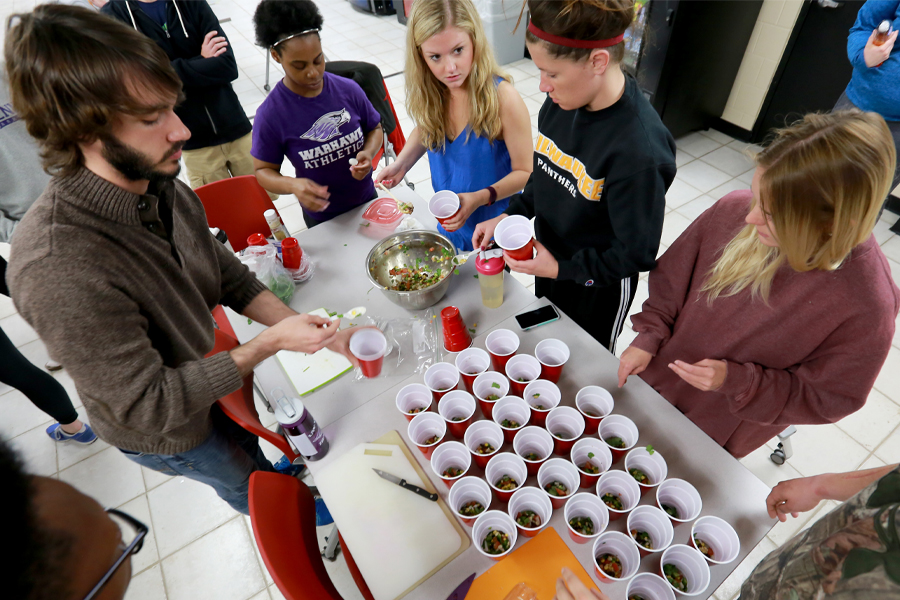
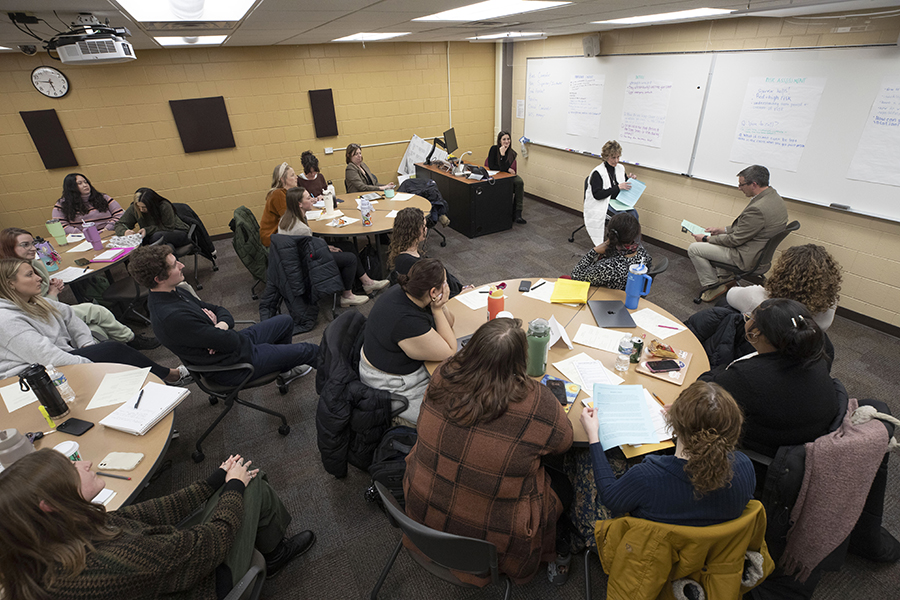
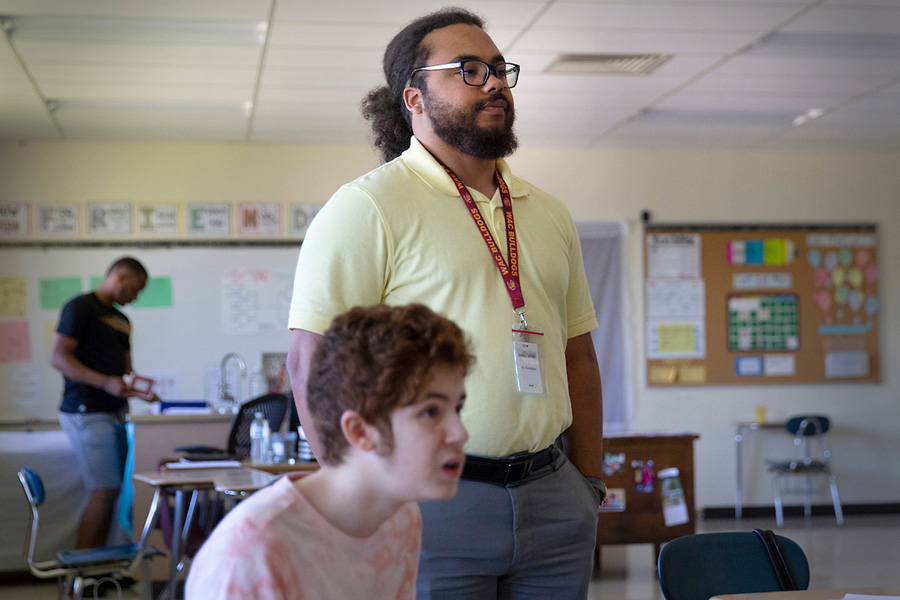
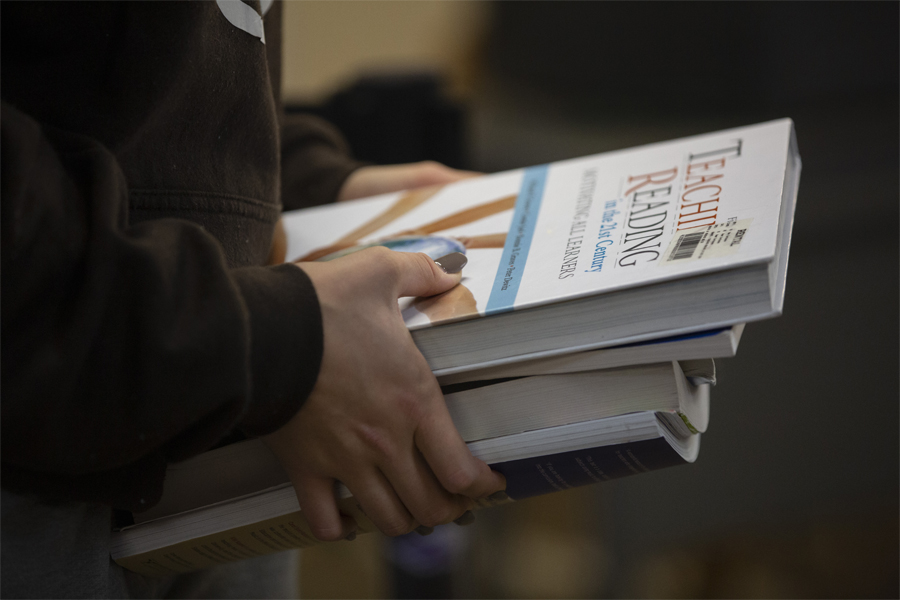
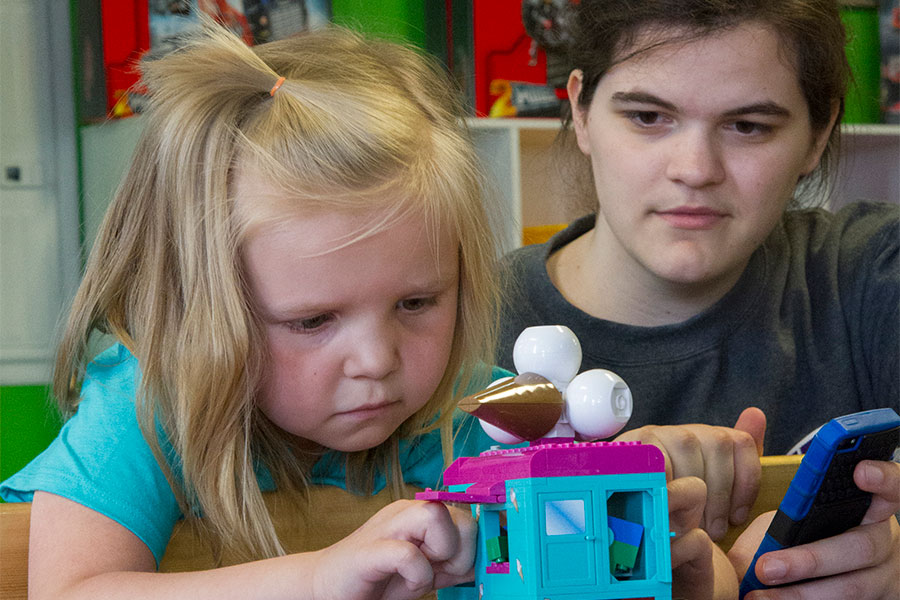

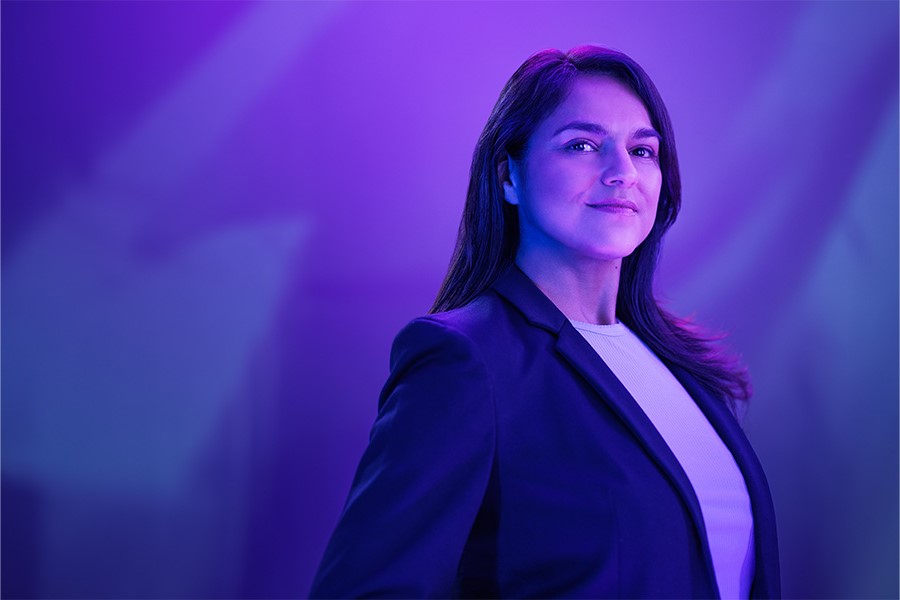
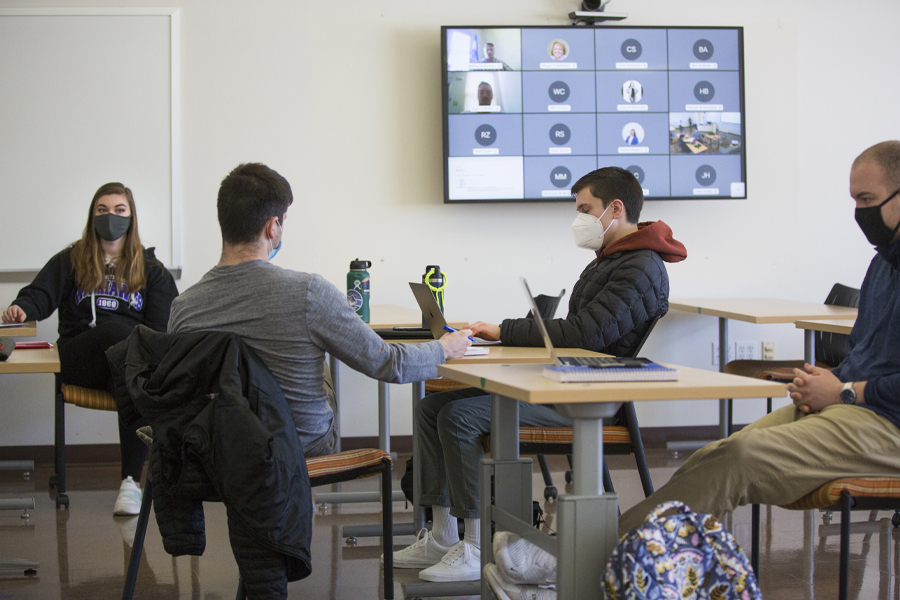
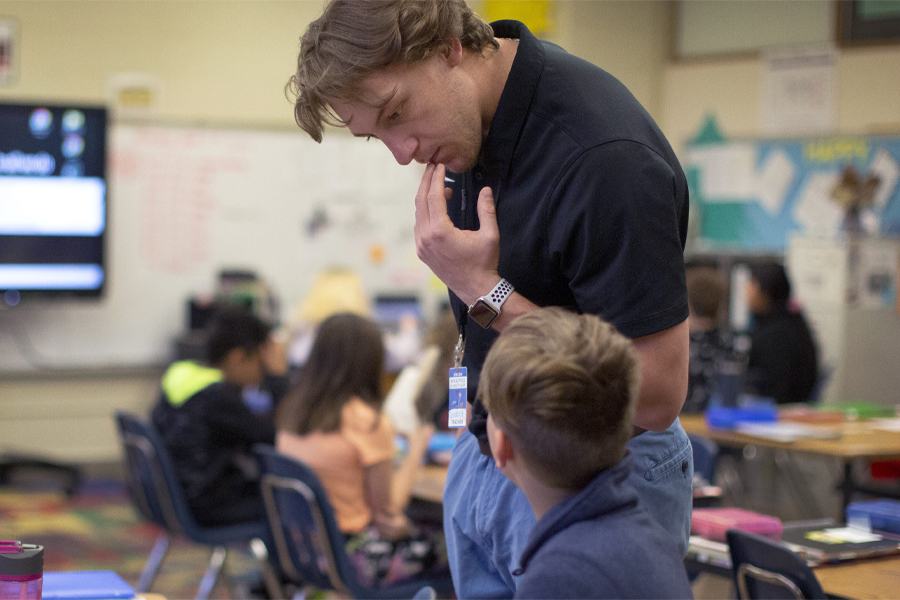
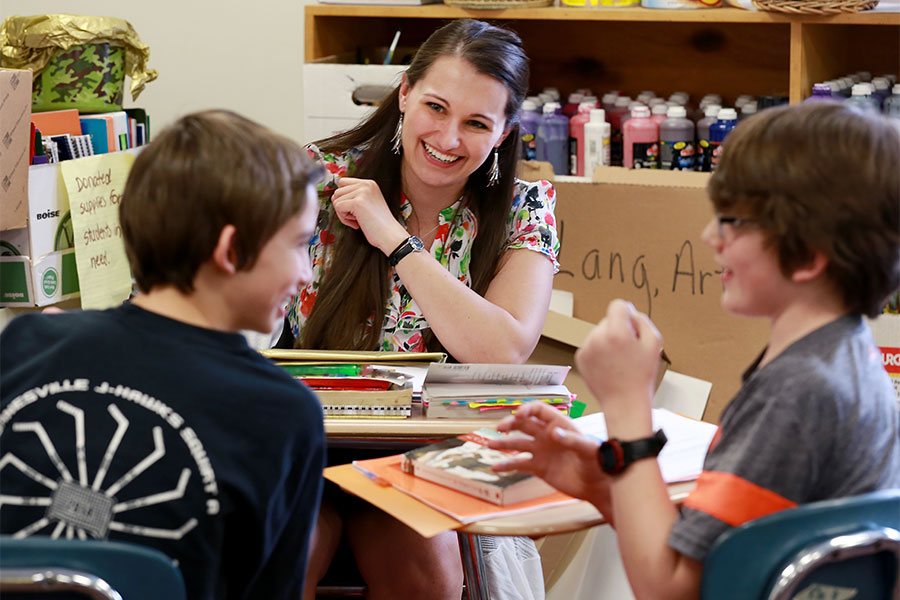
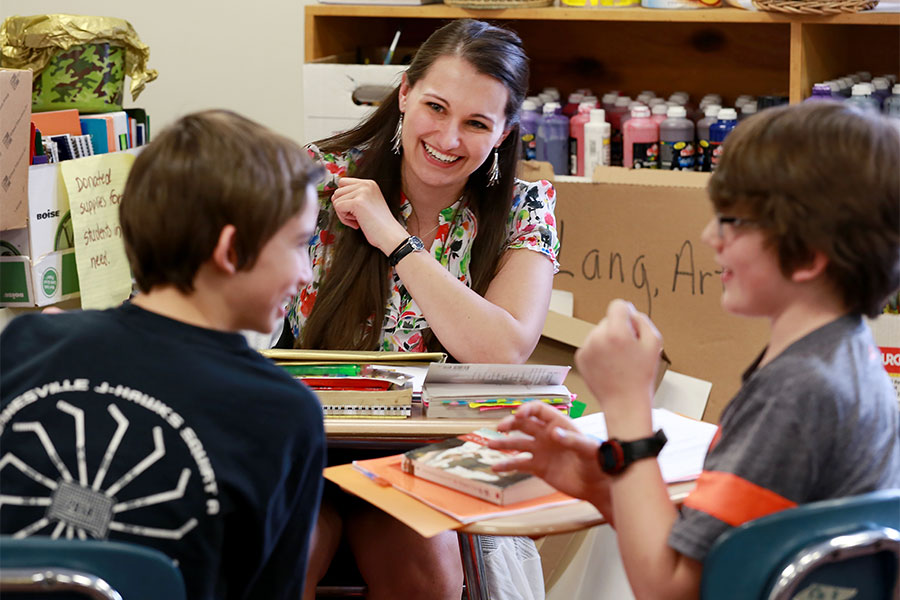
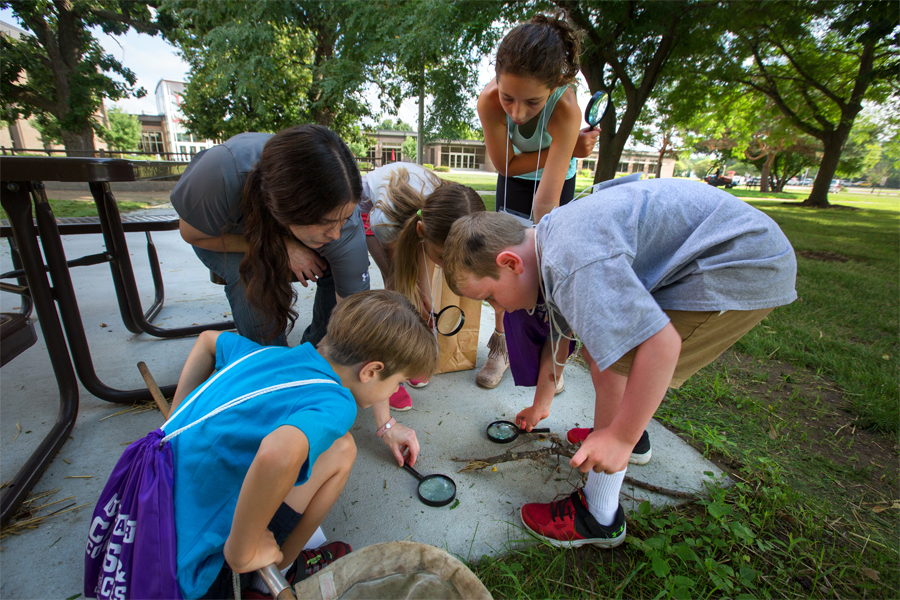

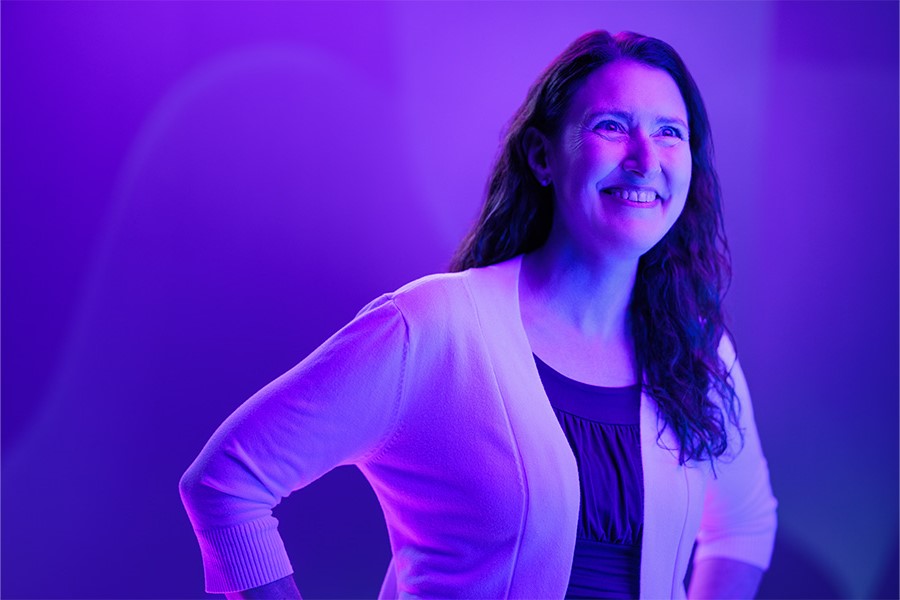

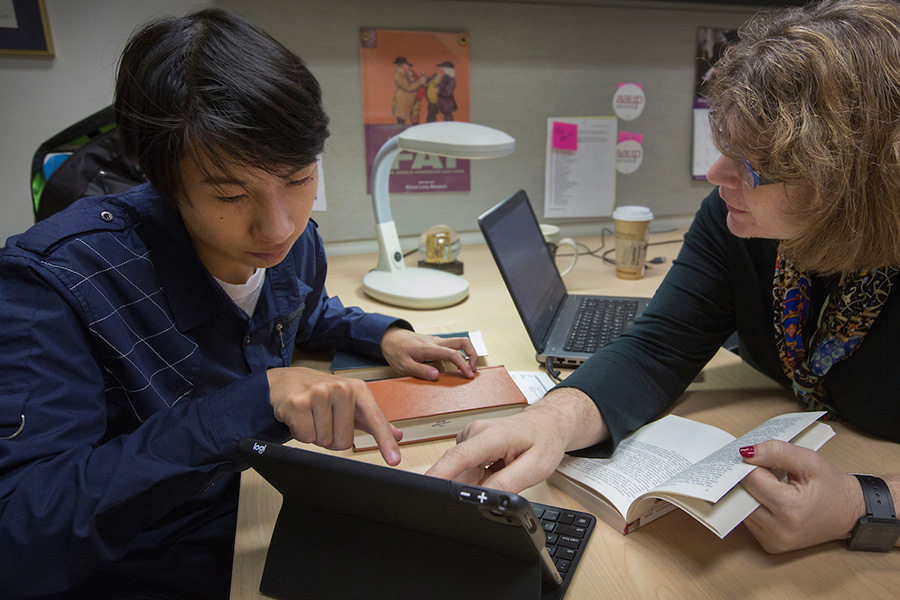




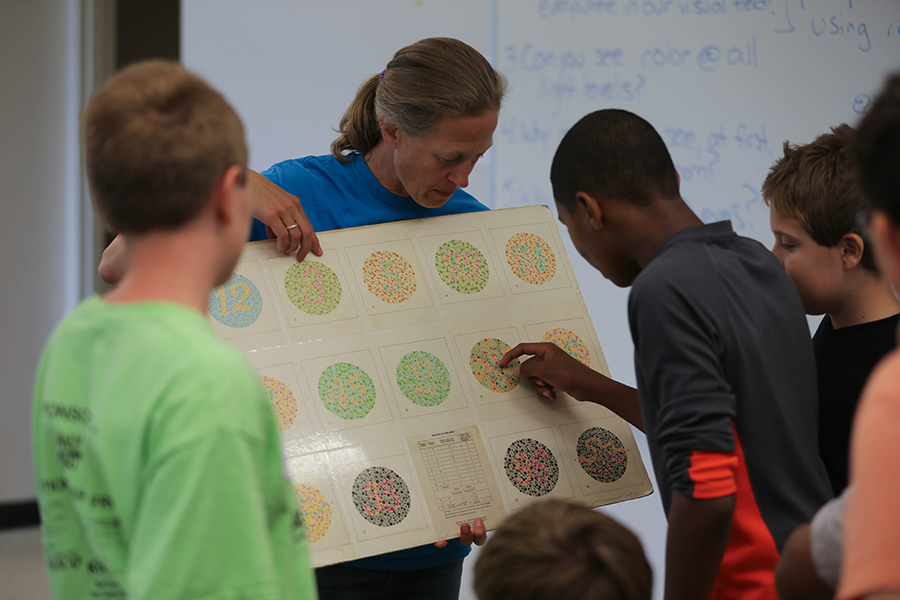
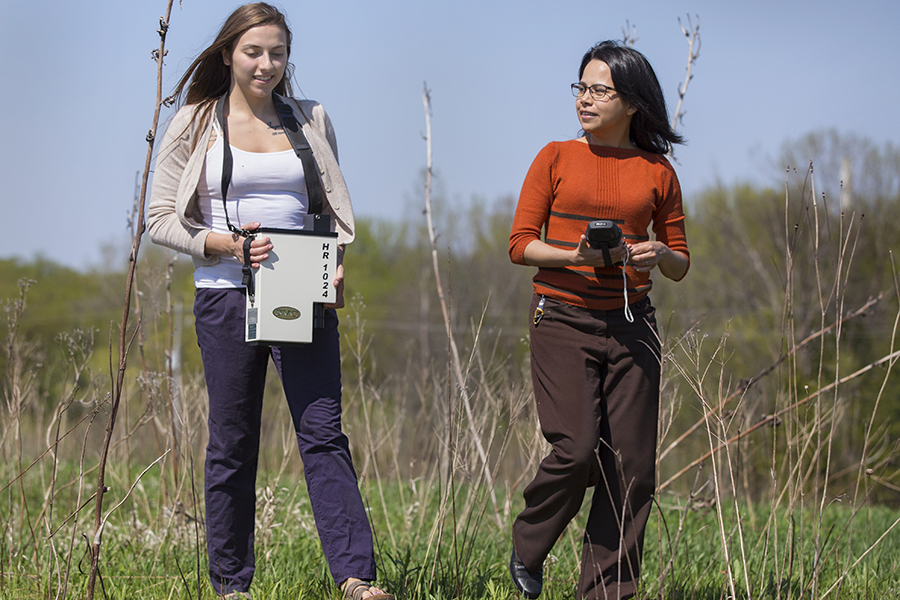

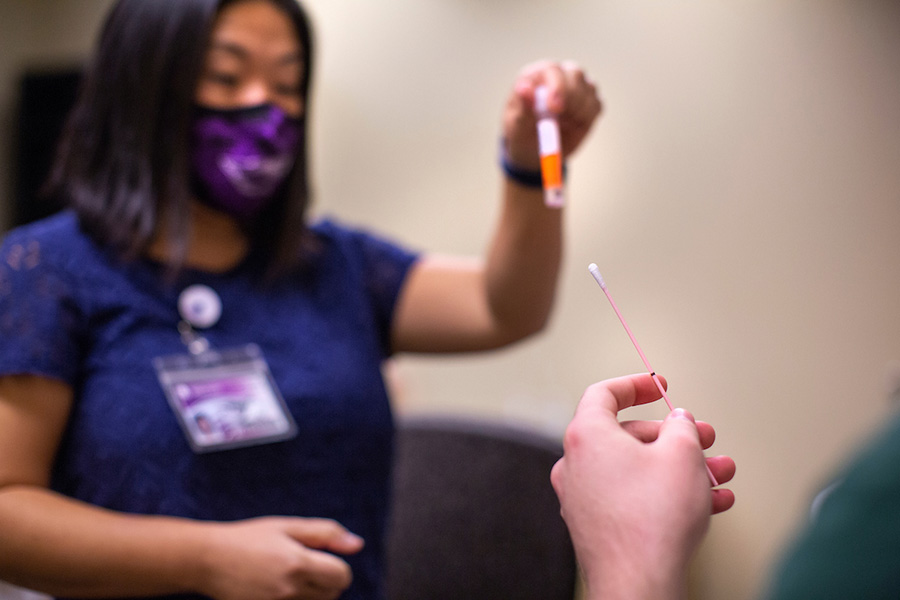
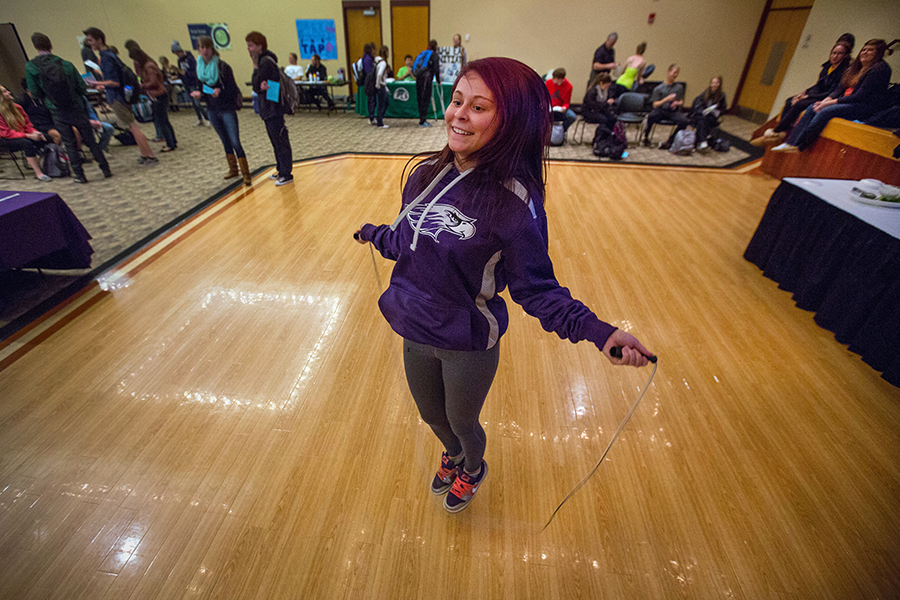


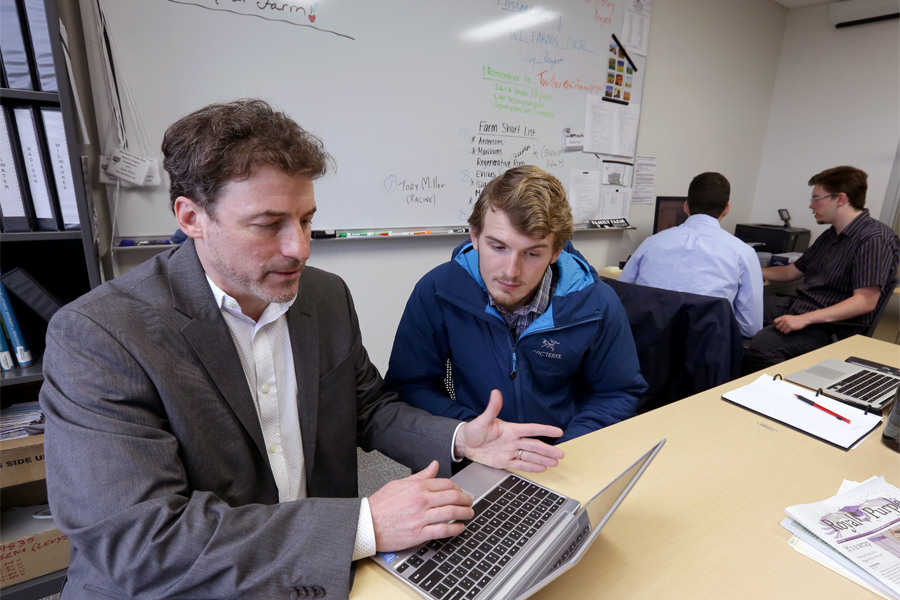
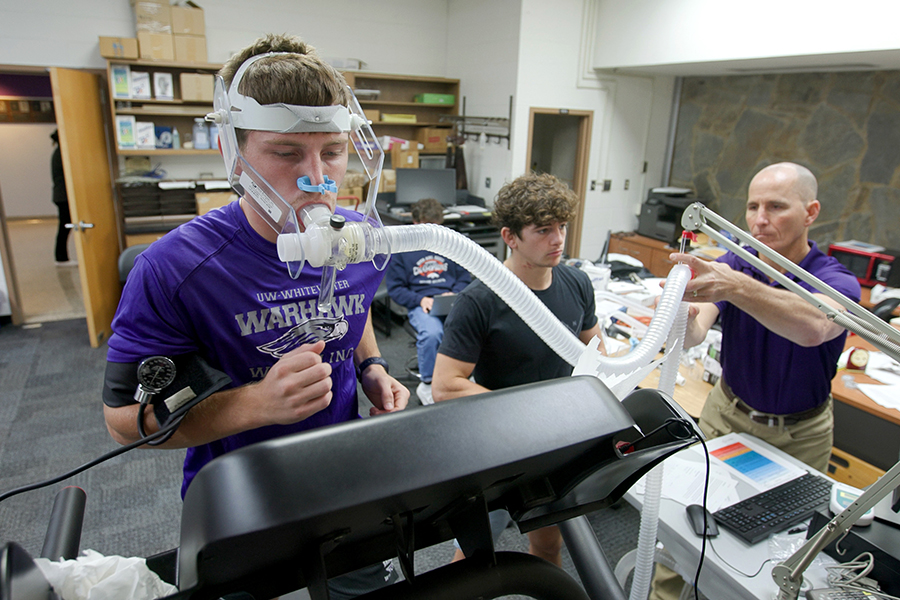
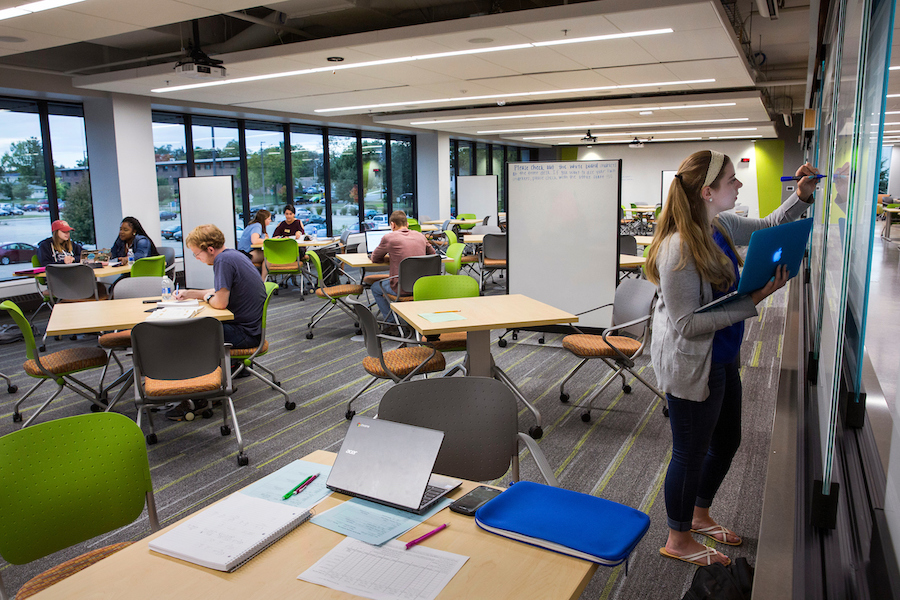

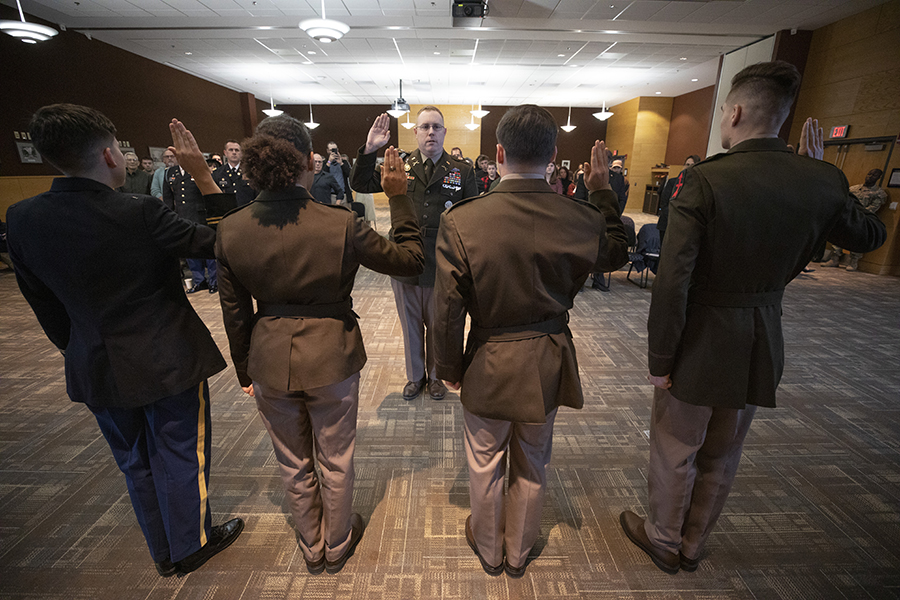



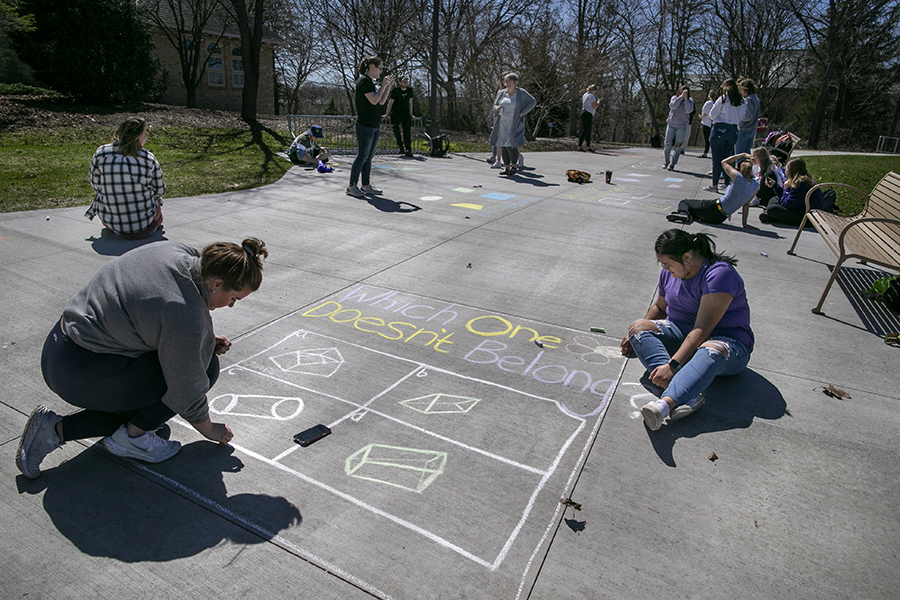
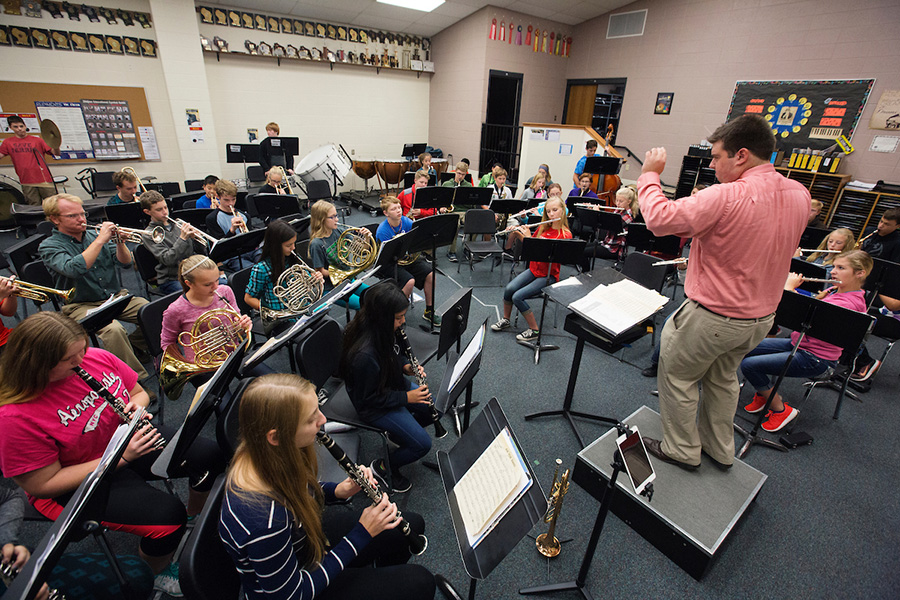

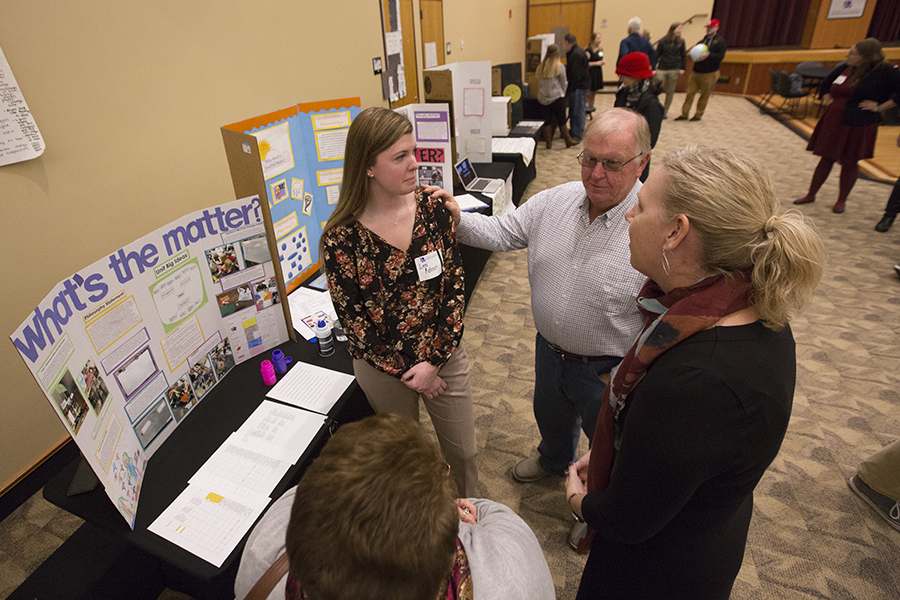
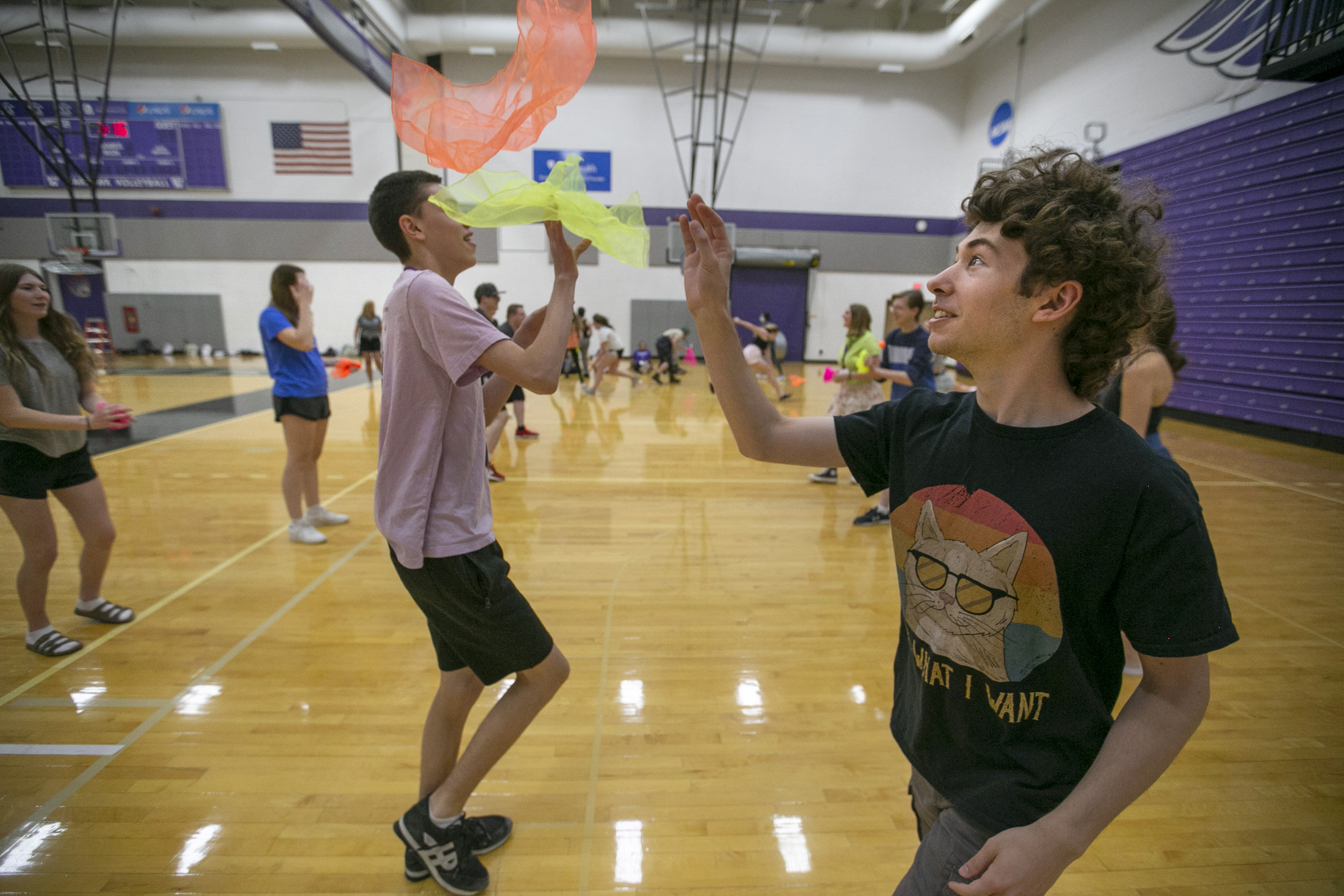
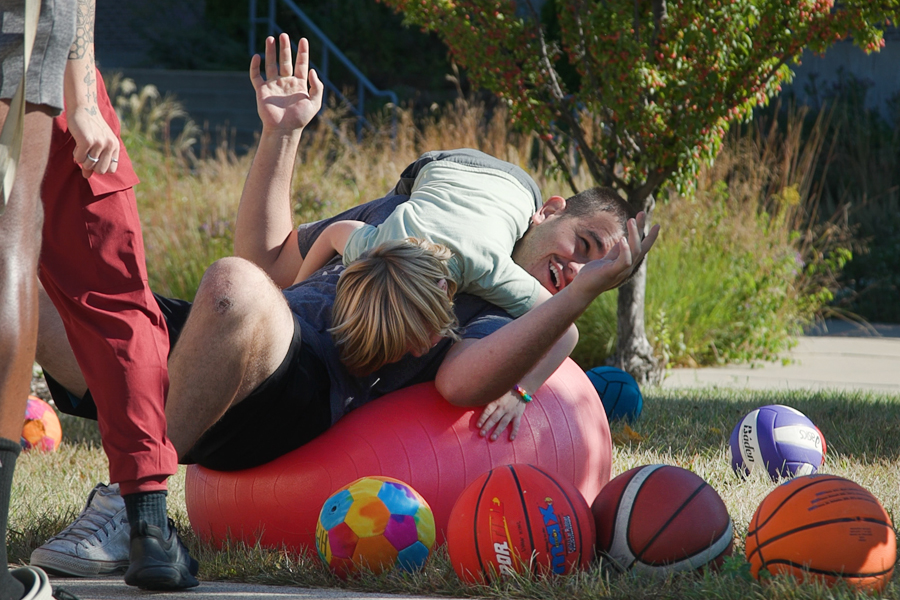
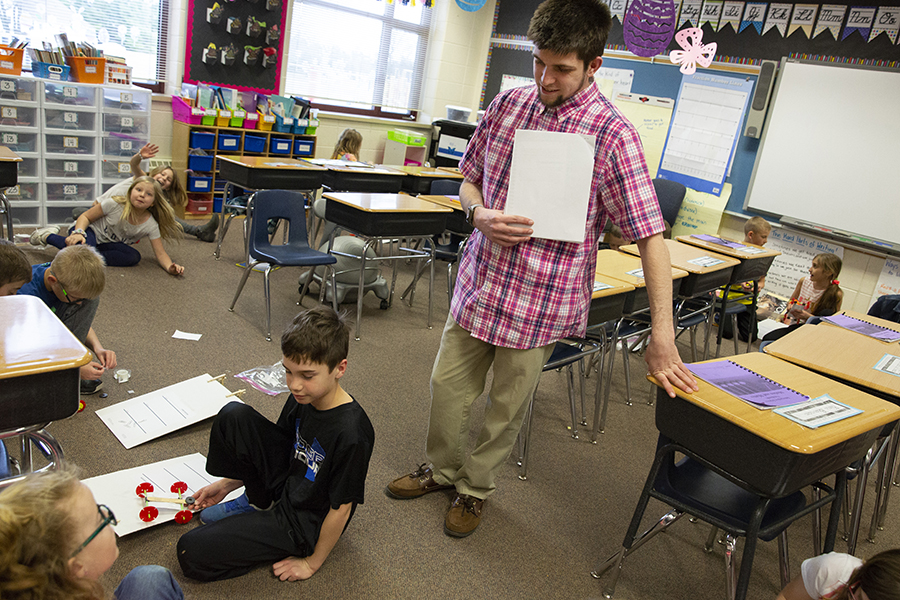

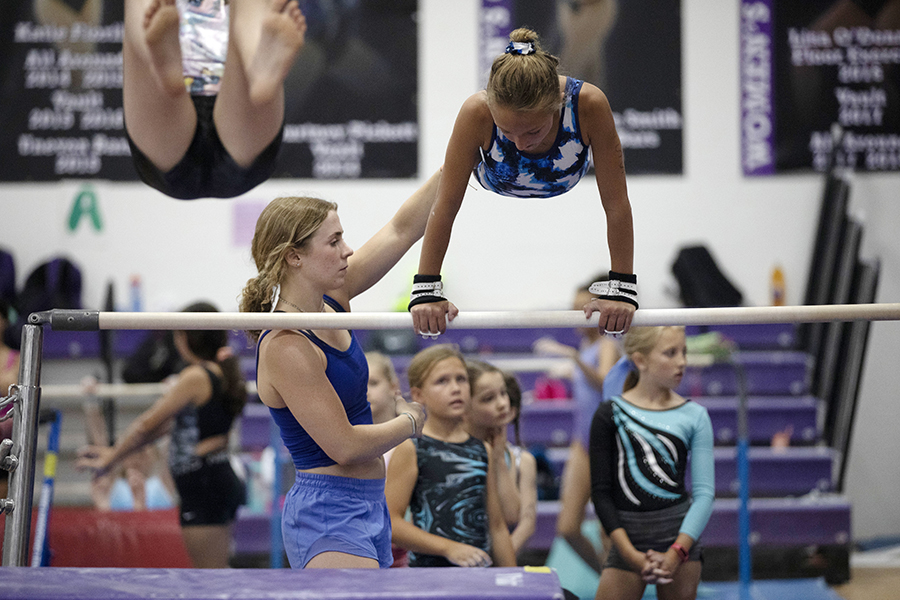

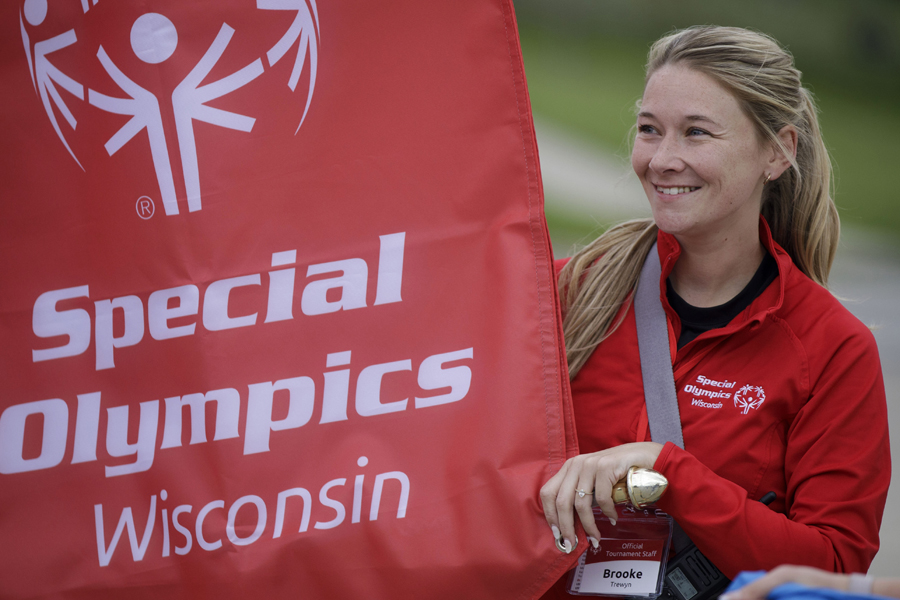
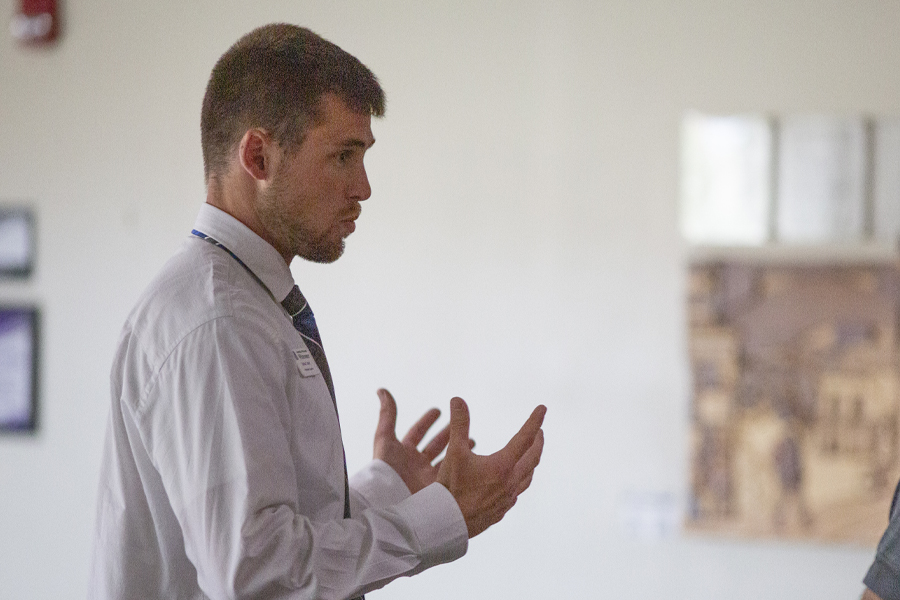




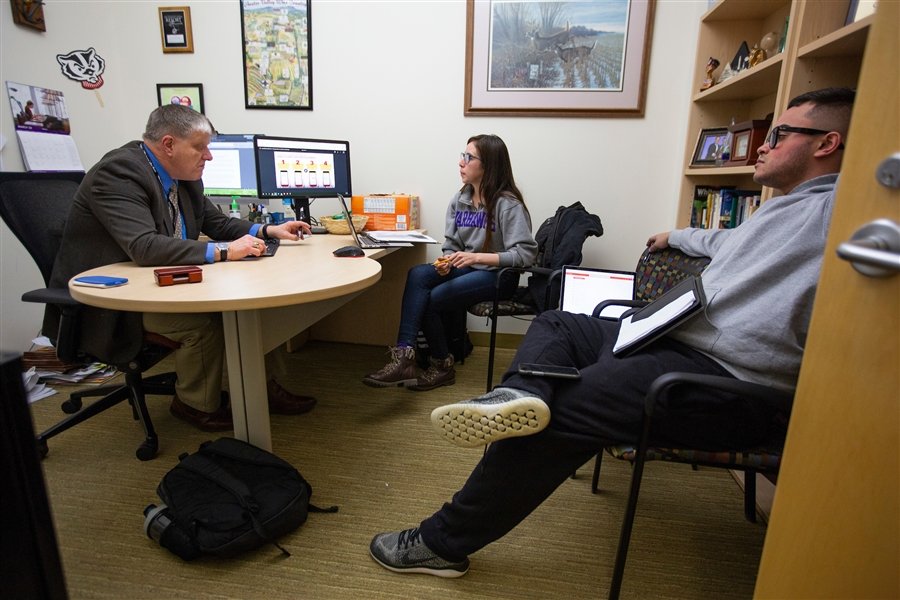


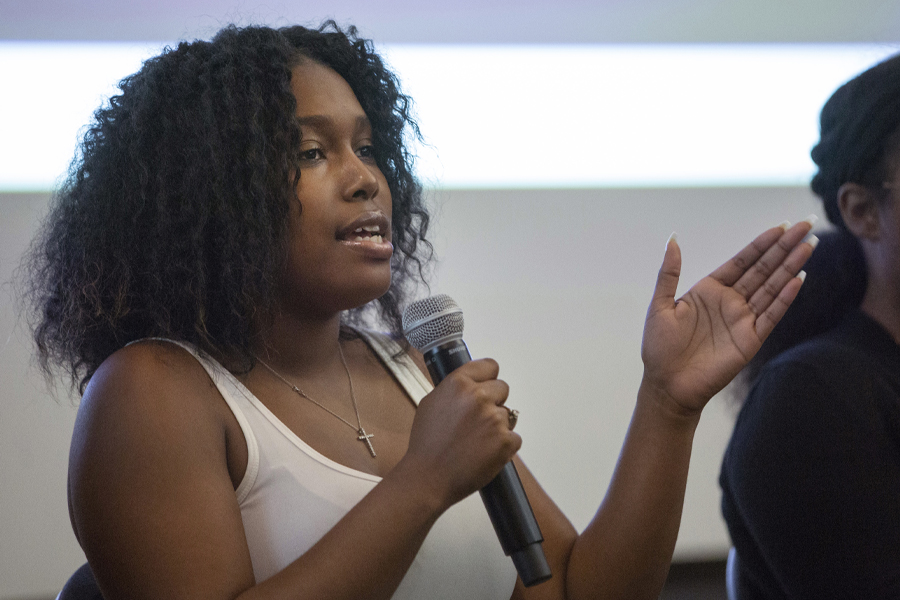
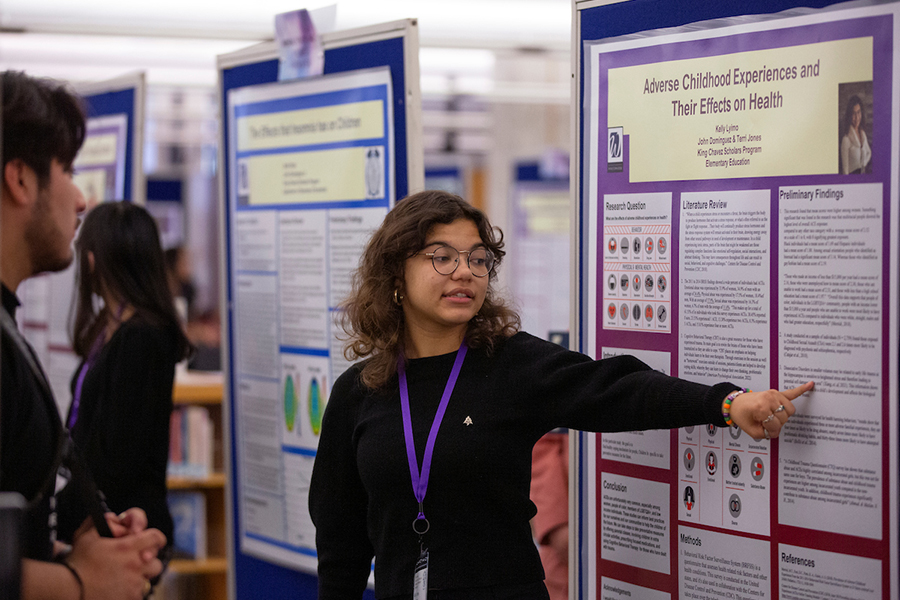
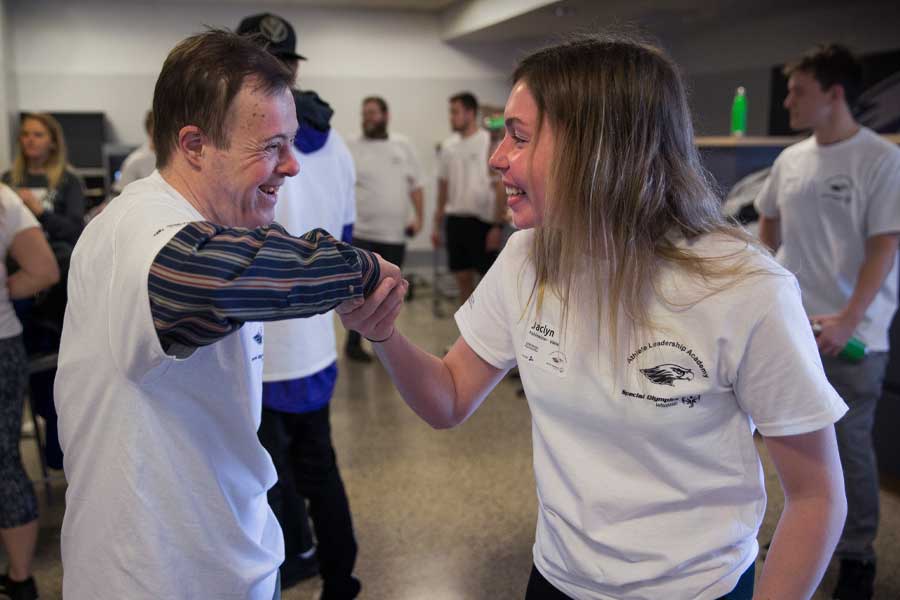


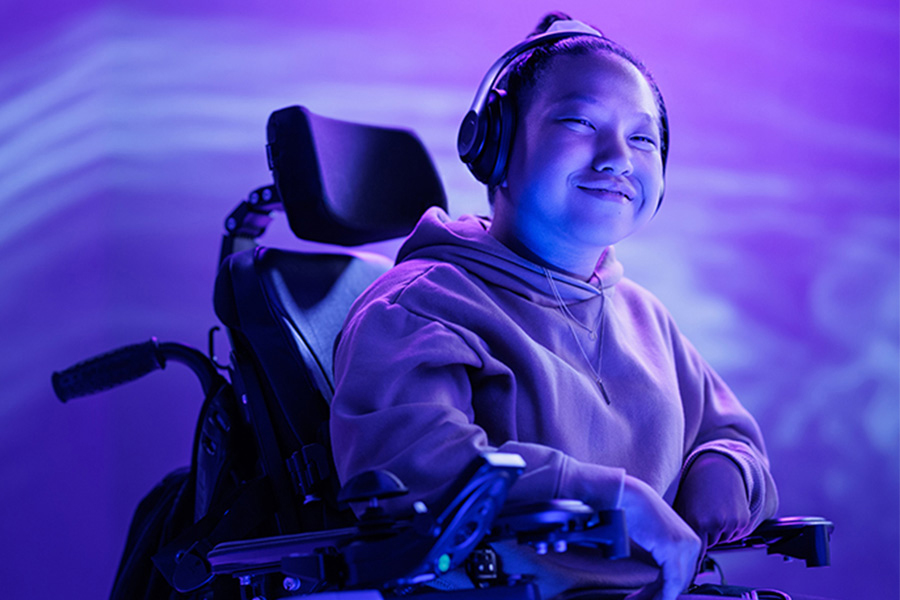

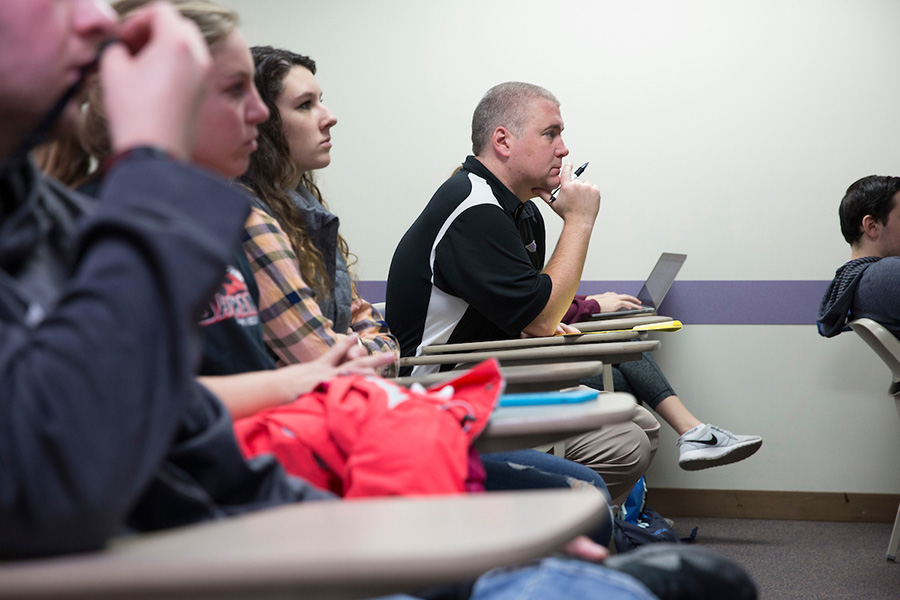
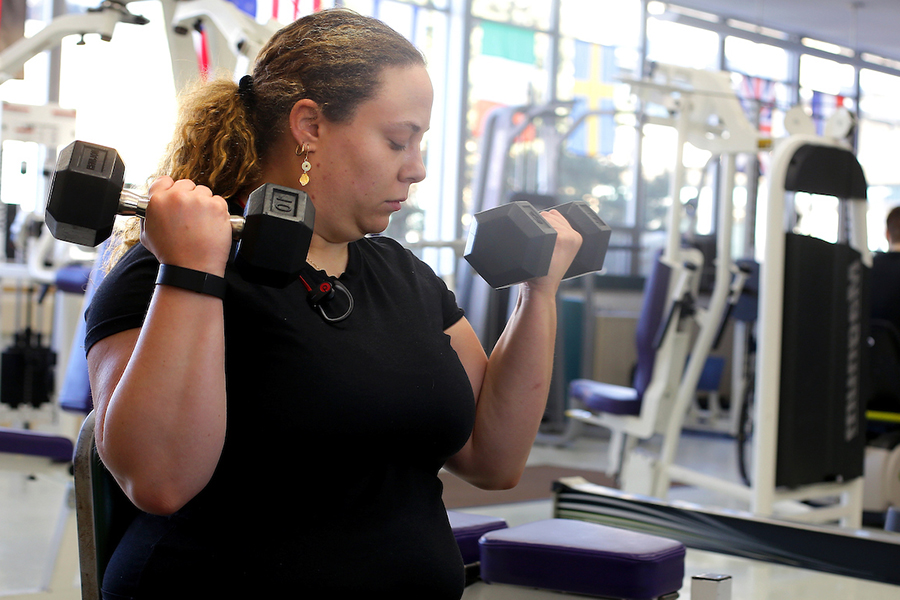
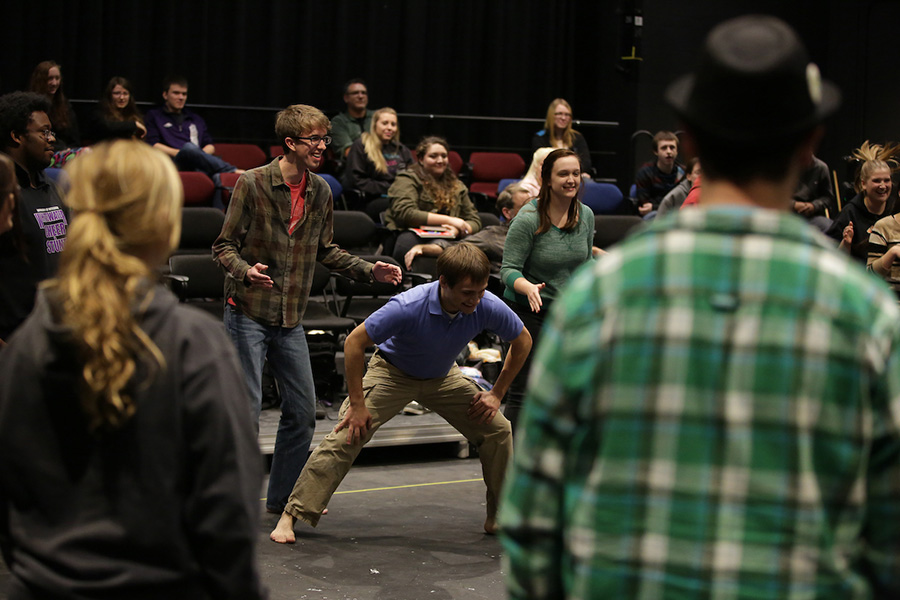


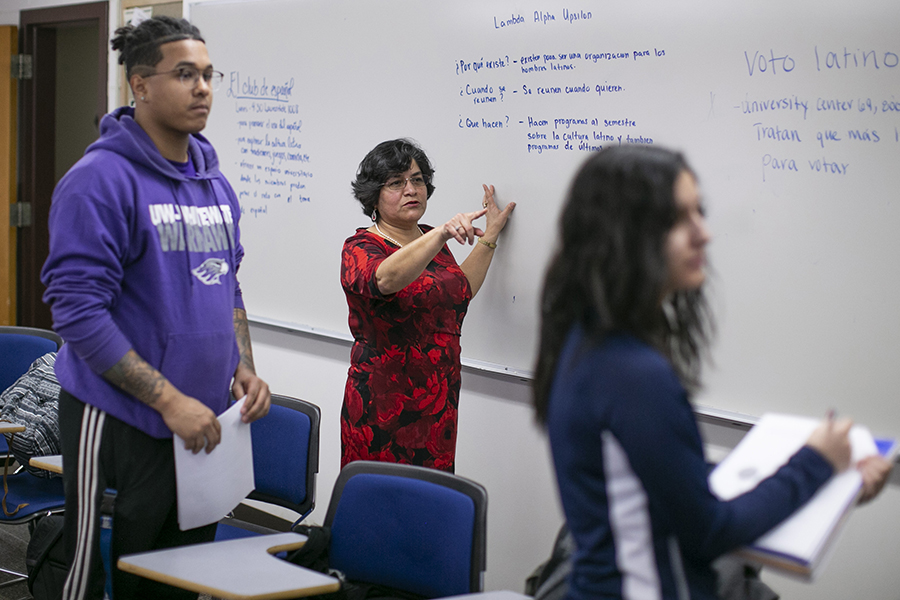
Adaptive Education Licensure
MinorMeant for education majors, the Adaptive Education Licensure minor includes courses focused on neurodiversity, learning and intellectual disabilities, as well as instruction inclusivity, to help you gain the specialized knowledge you need for your career.
Applied Behavior Analysis
Online Graduate CertificatePrepares professionals to work with individuals with special learning and behavior needs.
Applied Kinesiology
Online Master'sProfessionals with an advanced degree in kinesiology are in high demand. Further your career in this growing and rewarding field with our fully online program.
Art Education
Major/EmphasisGet exceptional training and earn licensure to teach art at the elementary and high school levels. With this major, you will take courses related to art and design, as well as instruction and teaching curriculum.
Assistive Technology
Online Graduate CertificateThe online graduate certificate in Assistive Technology is a transformative program designed to empower current and future educators with innovative strategies to meet the diverse needs of students with disabilities, particularly those who are neurodivergent.
Autism Specialist
Online Graduate CertificateDesigned for professionals with undergraduate degrees in education or related fields to work with individuals on the autism spectrum using advanced knowledge and skills specific to autism spectrum disorders and that are evidence based.
Biology Science Education
Major/Emphasis, MinorShare your passion for biology with the next generation with a major in Biology Science Education. At UW-Whitewater, you will be prepared through a strong foundation of courses on middle school and high school education, biology, organic chemistry, and much more.
Business and Computer Science Education
Major/EmphasisCombine your interests in teaching, computer science, and business. With this emphasis, you will take courses specializing in secondary education, teaching computer science and programming, and business education.
Business and Marketing Education
Major/EmphasisHave an interest in the advertisement and consumer behavior side of business, and want to teach about these subjects? UW-Whitewater is the perfect place to prepare for a successful career teaching students about the quickly changing field of business marketing.
Business Education
Online Master'sOur Business Education program, the longest-running in the United States, combines the study of teaching with the study of business. You will learn valuable skills for a career in teaching business through courses focused on teaching in middle and high school levels, business writing, economics, and much more.
Chemistry Science Education
Major/EmphasisAre you interested in teaching the building blocks of all other scientific studies? Then a major in Chemistry Education is the start you are looking for to pursue a fulfilling career. With this major, you will take courses focused on chemistry, secondary education, and science education, diving into your interests right away!
Clinical Mental Health Counseling
Certificate (Graduate)The graduate certificate in Clinical Mental Health Counseling is designed for individuals who have already earned a Master's degree in Counseling from a CACREP-accredited institution (or equivalent).
Coaching
MinorHave a passion for sports and athletics? Want to teach the next generation about the collaborative and physical skills that go into playing a sport? A minor in Coaching will allow you to take courses focused on coaching youth, the psychology behind coaching and mentorship, the history of athletics, strength and conditioning, and more.
Communication Education (Elementary or Secondary)
MinorWith a major in Communication Education, you will get the training you need to educate the next generation on how we process, transfer, and present information.
Communication Sciences and Disorders
Major/Emphasis, Minor, Master's, Post-BaccalaureateDemand for jobs related to Communication Sciences and Disorders is at an all-time high, and UW-Whitewater's program provides outstanding training. With courses like hearing and speech science, science writing, race and ethnic studies, anatomy, psychology, human development, and more, you will acquire the skills needed for a successful career.
Community Sport and Recreation
Certificate (Undergraduate)Learn how to manage, coach, and organize community and children's sports, as well as the fundamentals of leisure and recreation.
Corporate Wellness
Certificate (Undergraduate)A healthy workplace, and employee wellness and wellbeing, are critical to an organization’s success. Learn best practices in health promotion, fitness, nutrition and safety.
Counseling
Master'sThrough the M.S. in Counseling program, you’ll develop the essential skills to assess personal issues, collect and analyze information, practice effective facilitative techniques, and develop treatment plans that meet client or student needs. Students can choose from a Clinical Mental Health or School Counseling emphasis.
Disability in Community, School and Society
MinorEmbark on a focused study on the societal connections of students who require special education. You will take courses specialized in subjects such as legal compliance in special education, characteristics and interventions, and inclusivity in curriculum. This minor is designed for students who are majoring in programs other than education. For education majors, the equivalent minor is Adaptive Education Licensure.
Dyslexia and Language-Based Learning Disabilities
Online Graduate CertificateThis online certificate prepares professionals with undergraduate degrees in education or related fields to provide intensive reading intervention based on the science of reading.
Early Child Care and Education
Online Bachelor'sIf you have previous coursework in early childhood education, and want to support the care and learning of children, this non-licensure bachelor's program may be for you. You'll choose an emphasis in leadership or teaching in this online degree designed for working professionals.
Early Childhood/Early Childhood Special Education
Major/Emphasis, Online Bachelor'sOur earliest teachers shape our introduction to learning. If you have an interest in teaching young children, an Early Childhood/Early Childhood Special Education degree will prepare you to succeed in this important and rewarding career. Our courses will provide you with an understanding of child developement and education, care from birth to age three, interacting with a diverse range of families, and much more.
Early Childhood Education Policy
Master'sAddressing an ongoing need for early childhood education advocacy, students will learn the essential interdisciplinary insights necessary for successful cross-sector collaboration to address early childhood education system solutions.
Economics Education
Major/Emphasis, MinorHelp students understand the inner workings of the world economy and how it will affect their day-to-day lives. With this major or minor, you will take courses focused on secondary education and instruction, business and social studies education, microeconomics, and more!
Education — Elementary through Middle School
Major/EmphasisBecome a licensed teacher for kindergarten through 9th grade. With courses in curriculum and instruction, special education, math, science, reading education and more, our Elementary and Middle School Education major will prepare you for a fruitful career. Choose an emphasis in dual licensure, social justice or STEM/STEAM.
Education — Kindergarten through 12th grade
Major/EmphasisThe Early Childhood through Adolescence program prepares you to teach all ages, from grades K-12, in Wisconsin public schools.
Education — Middle School through High School
Major/EmphasisAs a student at UW-Whitewater, you’ll have the advantage of strong academic departments and resources across the university — this is where you’ll develop your subject matter expertise.
Educational Studies
MinorThis minor introduces you to foundational knowledge about teaching, learning, and schools. It provides valuable training for those pursuing careers in education-adjacent fields such as educational technology, policy-making, administration, and youth outreach/support.
Educator In School Counseling
Certificate (Graduate)The Educator in School Counseling graduate certificate is an innovative, blended-format program designed for individuals who have already earned a master's degree and are seeking to obtain their School Counseling (7054) license in Wisconsin.
Elementary Middle Education
Online Master'sThe MSE in Elementary Middle Education is a 32-credit program that prepares candidates for licensure to teach math, English and language arts, science, and social studies grades K-9.
Emerging Technology for Digital Learning
Online Graduate CertificateGives students key skills in understanding current trends, research skills to explore effectiveness of learning technologies, and experience working with emerging learning technologies.
English Literature and Language Arts Education
Major/Emphasis, MinorShare your love of language, communication and comprehension by choosing a major or minor in English education. You'll take courses focused on reading, writing, analyzing literature, curriculum, instruction, and more, as you prepare for a career in teaching.
Bilingual/Bicultural and ESL Education
MinorEnglish as a second language (ESL) and Bilingual/Bicultural Education are exciting and rapidly growing fields in need of many dedicated and well-prepared teachers. With our minor, take courses focused on integrating inclusive cultural and linguistic knowledge into the elementary and high school curriculum of your future classroom.
Fitness and Wellness Entrepreneurship
Certificate (Undergraduate)From accounting to marketing to fundraising, learn the business skills needed to succeed in sport fitness and wellness in a corporate or organizational leadership setting.
Foundations of Learning Design
Online Graduate CertificateLearn how to design learning experiences in today's world in various settings and understand instructional design theories, practices, models and learner needs.
French Education
Major/Emphasis, MinorHave a love for the French language and a desire to teach? The French Education major at UW-Whitewater is the perfect way to combine these two passions, allowing you to take courses in intermediate and advanced French, and teaching curriculum and instruction at a middle and secondary level.
General Science Education
MinorProvide elementary students with a base understanding of science and the experimental process with a minor in General Science Education.
Geography Education
Major/Emphasis, MinorTeach students a broader view of the world. At UW-Whitewater, a major or minor in Geography Education will give you the proper training to teach geography classes to secondary level students with courses focused on different geological lenses.
German Education
Major/Emphasis, MinorCombine your love of the German language and your interest in teaching. With a major or minor in German Education, you will deepen your understanding of the language with courses on phonetics, civilization, and German literature, as well as courses focused on instruction and the teaching of curriculum to middle and secondary level students.
Health Education
Minor, Certificate (Undergraduate)Do you have a passion for teaching current and relevant topics such as mental health, nutrition, fitness, sleep, sexual health, and drug safety? If so, UW-Whitewater's Health Education minor is right for you. Take courses on human health and performance, kinesiology, special education, and instruction/teaching curriculum to secondary level classrooms.
Health Promotion
MinorWith a minor in Health Promotion, you will explore knowledge, attitudes, and experiences in differing health fields and learn how health education, health maintenance, and wellness affect various populations. Take courses related to kinesiology, exercise science, health in sport performance, and many more connected topics.
Higher Education Leadership
Master'sCompleting a degree in Higher Education Leadership at UW-Whitewater will prepare you for a position of your choice in a higher education setting — this field offers a wide array of opportunities.
Higher Education Leadership (Athletic Administration)
Master'sA Master of Science in Education in Higher Education Leadership with an emphasis in Athletic Administration prepares students with an understanding of how to implement policy, apply theory, collaborate across higher education units, and engage in critical equity-minded decision-making processes.
History Education
Major/Emphasis, MinorIt has been said that those who don't understand history are bound to repeat it. Give next generation an education on the past in order to build the wisdom they will need for the future by pursuing a degree in History Education. Take courses on both national and international history, social studies education, international studies, middle and secondary level curriculum and instruction, and more.
Human Performance
Major/Emphasis, Online Bachelor'sPrepare for a rewarding career in kinesiology and performance sciences with a major in Human Performance. Train for many health-related fields ranging from athletic training to physical therapy. You'll take courses on motor control, the structure and wellness of the human body, nutrition, exercise and sports studies, and much more.
Instructional Design and Learning Technology
Online Master'sEmpowers you to design state of the art learning experiences and lead innovation in your ever-changing field.
Leadership and Learning Support
Online Graduate CertificateThe Graduate Certificate in Leadership and Learning Support is designed to provide leaders in education with the knowledge and skills necessary to become stronger, more successful leaders and agents of positive change in schools, systems, and communities.
Leadership and Military Science
MinorThrough experiential and collaborative learning, this minor will allow students to grow to become leaders in either the Army, Air Force or civilian career fields. With courses focused on developing strong leadership skills, diversity understanding, and discussion of worldy issues, you will get the training you need for a military-related and/or leadership-oriented career.
Leadership in Instructional Design and Learning Technology
Online Graduate CertificateFocused on helping students to develop new programs and initiatives, prepare for leading learning technology units, and lead change in an organization.
Library Media K-12
MinorWith a minor in Library Media for the K-12 age range, you will be given the training you need to be educators through literature, agents of change, and leaders within your school and community. Take courses focused on literature for youth, navigating digital media, curriculum design and instruction, and more!
Library Science
MinorA minor in Library Science will feature courses on subjects ranging from information organization, to children's literature and educational foundations, and give you the training you need for many different career paths such as librarian and information management specialist.
Mathematics Education
Major/Emphasis, MinorHave a knack for explaining mathematical concepts to others? A major in Mathematics Education will provide you with the proper training for a career as a licensed math teacher for middle level or high school level learners. The minor can train you to teach children at the elementary or secondary level the problem-solving skills that will last a lifetime.
Music Education
Major/EmphasisSpread your love of music to the next generation with a degree in Music Education at UW-Whitewater. With courses focused on musical aspects, such as aural skills, performance, and music history, combined with courses on curriculum and instruction, you will be well prepared to teach.
Music Education (Choral, General, Instrumental)
Major/EmphasisSpread your love of music to the next generation. If you love what music has done for you, you can teach others to share that passion with a degree in music education from UW-Whitewater.
Philosophy Education
MinorIf you have a passion for discussing abstract ideas surrounding the human experience and existence, consider a minor in Philosophy Education. Take courses on contemporary moral issues, ancient Greek philosophy, logic, secondary education and curriculum, and much more, which will prepare you for teaching students to analyze knowledge and to think critically.
Physical Education
Online Graduate Certificate, Post-BaccalaureateIn this online program, you will learn about basic education principles, how to build a PE Curriculum, how to teach in and manage a gym space, and skills and strategies for many different sports, games, and athletic activities. In just a few semesters, you can have your Wisconsin Physical Education Teaching License and be on your way to creating a healthier tomorrow for your students.
Physical Education, Health Education and Adapted PE
Major/EmphasisGet licensed to teach physical education and health in Wisconsin to children from the ages of kindergarten to 12th grade. Courses will explore special education, motor skills, kinesiology, exercise psychology, wellness, curriculum and more.
Physics Science Education
Major/Emphasis, MinorTake courses on engineering and technology's relation to physics, secondary level education and curriculum, mathematics, and science education, preparing you to help students begin a path that can lead to numerous career choices, from computers and technology to power and energy.
Political Science Education
Major/Emphasis, MinorIn this program, you will study subjects such as the legislative process, secondary education and curriculum, political theory, international relations, history and more, giving you the knowledge and training to educate future politically literate and empowered citizens.
Pre-Athletic Training
Certificate (Undergraduate)With a certificate in pre-athletic training, students will engage in courses and hands-on learning in heath, biology, sports, nutrition, exercise, and performance.
Producing Effective Learning Experiences
Online Graduate CertificateFocuses on qualifying students in instructional design and becoming learning technology professionals that can produce dynamic, engaging, and effective learning experiences.
Professional Studies (Curriculum and Instruction)
Master'sA Master of Science in Education in Professional Studies with an emphasis in curriculum and instruction, allows practicing teachers to improve their own craft, eventually engaging in action research in their own classroom.
Professional Studies (Information, Technology, and Library)
Master'sA Master of Science in Education in Professional Studies with an emphasis in information, technology and libraries, prepares students to be leaders and library media specialists in Wisconsin schools.
Psychology Education
Major/Emphasis, MinorHelp students understand their own behavior, emotions, and brain anatomy while studying those in others. You will take courses on subjects ranging from special education and secondary education/curriculum to emotion perception and psychopathology, all preparing you for a successful career as a Psychology educator.
Reading Instruction and Dyslexia Intervention
Online Master'sThe Reading Instruction and Dyslexia Intervention program is designed to equip educators with the knowledge, skills, and strategies necessary to effectively support individuals with dyslexia and other reading difficulties
Reading Teacher License (1316)
Online Graduate CertificateThe Reading Teacher License (1316) program is designed to equip you with the skills, knowledge, and credentials to excel as a reading teacher at the elementary and secondary levels.
Recreation Leisure Studies
MinorHelp people get more out of their leisure time by teaching activities at places such as parks, pools, gymnasiums, or trails. With this minor, you will take courses on subjects such as diversity within instruction, human performance studies, kinesiology, sports and exercise studies, and more.
School Counseling
Certificate (Graduate)The graduate certificate in School Counseling is designed for individuals who have already earned a Master's degree in Counseling from a CACREP-accredited institution (or equivalent).
Social Emotional Learning and Mental Health in Schools
Online Graduate CertificateThe Social Emotional Learning and Mental health in Schools graduate certificate is an interdisciplinary program designed for professionals who work with young people in school-based environments.
Social Studies (Elementary Education)
MinorIn this minor, you will take courses on national and international history, psychology, geography, education and curriculum, as you prepare to teach topics in social studies to elementary school children.
Sociology Education
Major/Emphasis, MinorTo make a positive difference in society, it's important to understand how it works. You can provide that education to the next generation with a Sociology Education degree from UW-Whitewater. With this major, you will take courses on many subjects including the sociology of news and the mass media, gender, racial, and religious sociology, secondary education, and much more.
Spanish Education
Major/Emphasis, MinorLearning a new language is a priceless experience for children's growing minds. Be the person who encourages this growth with a Spanish Education major. UW-Whitewater will provide you with courses on Spanish phonetics, civilization, and literature, as well as middle and secondary education/curriculum, properly preparing you for a career in teaching Spanish.
Special Education
Major/Emphasis, Online Bachelor's, Online Master'sOne of the most in-demand disciplines is special education. Our programs will prepare you for working with individuals with exceptional educational needs (EEN), from birth to adulthood, with courses on working with parents of students with EEN, inclusive curriculum and instruction, behavior and academic intervention, and much more.
Special Education (Adaptive Education to Cross Categorical Licensure)
Online Master'sThe MSE in Special Education with an emphasis in Adaptive Education to Cross Categorical is designed for UW-Whitewater alumni with BSE and Adaptive Education to complete their cross categorical coursework at the graduate level.
Special Education (Applied Behavior Analysis)
Online Master'sThe Applied Behavior Analysis emphasis Master's degree is designed to prepare professionals with undergraduate degrees in education or related fields to use Applied Behavior Analysis to create, coordinate and/or implement ABA-based interventions with individuals who have challenging behavior and/or disabilities.
Special Education (Cross Categorical Licensure)
Online Master'sThe MSE in Special Education with an emphasis in Cross Categorical Licensure is designed for working professionals with a bachelor’s degree who seek initial licensure in special education.
Special Education (Evidence Based Practice)
Online Master'sThe MSE in Special Education with an emphasis in Evidence Based Practice is designed for currently licensed teachers or professionals in related fields who seek advanced knowledge in special education.
Sports Management
MinorWell-suited for students wishing to focus on the business side of the sports industry, the Sports Management minor includes courses on recreation management, kinesiology in sports, commercial recreation, and more.
Strength and Conditioning
MinorOur program helps students who want to become professional strength and conditioning coaches, as well as those who are interested in sport coaching, personal training, athletic training, or physical therapy. With courses focused on kinesiology, exercise science, nutrition, and more, a minor in Strength and Conditioning will prepare you for a successful career in helping people push the limits and practice personal wellness.
Theatre Education
Major/Emphasis, MinorTrain future actors, directors, costume designers, stage managers, stage crew and more. Our program will give you experience in both the front and back of the stage, and preparation to teach elementary through high school curriculum.
Transition Specialist
Online Graduate CertificatePrepares educators, independent living professionals, and Transition specialists to work effectively with gifted adolescents and young adults.
Trauma Informed Practice in Education
Online Graduate CertificateThe online graduate certificate in Trauma Informed Practice in Education is designed to equip professionals with the knowledge and skills to provide support for districts whose students have been affected by trauma.
World Languages Education
Major/EmphasisAs the world has grown smaller, the importance of fluency in world languages has only grown. At UW-Whitewater, your love of languages will be encouraged and fostered to serve you well into the future.

